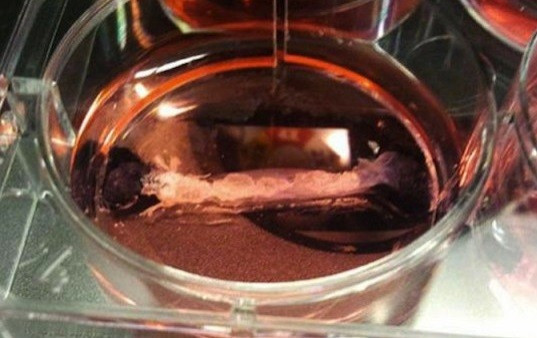£200,000 Stem Cell Muscle Hamburger Ready to Taste
Hamburger produced exclusively from lab-grown meat to make debut with diners

After more than a year of stem cell experiments, Dutch scientists are ready to serve a hamburger made entirely from meat grown in a laboratory.
University of Maastricht researcher Mark Post said that he had completed the burger, which was made in a laboratory Petri dish, at a cost of more than £200,000 ($320,000).
Post said that producing artificial meat in this way could reduce the environmental footprint of farmed animals by as much as 60%.
He has invited curious diners to test his hamburger at specially organised event on 5 August in London.
Ogilvy Public Relations said: "The event will include a brief explanation of the science behind the burger before it is cooked and tasted."
The burger was created by growing bovine stem cells in a vat, turning them into tens of thousands of thin strips of beef muscle cells and mixing them together with blood and artificially grown fat.
The experiment got the go-ahead with a £200,000 donation from an anonymous source, who will be revealed before the tasting.
"The reason we are doing this is not to show a viable product but to show that in reality we can do this," he told BBC News.
"From then on, we need to spend a whole lot of work and money to make the process efficient and cost-effective."
Post added that even without fat, the strips of muscle cells he created "tastes reasonably good." For the London event he plans to add only salt and pepper to the finished burger.
"This is still an early-stage technology," said Neil Stephens, a social scientist at Cardiff University. "There's still a huge number of things they need to learn."
Gabor Forgacs, a researcher at the University of Missouri, added: There are a lot of parallels to cultured meat, except that it is a lot less controversial because you're not going to eat it.
"But if we can convince the universe that we can build leather, it will be much easier to convince the universe that we can build meat."
© Copyright IBTimes 2025. All rights reserved.






















